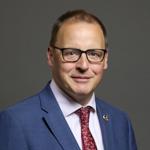Defibrillators: Disadvantaged
(asked on 4th February 2025) - View SourceQuestion to the Department of Health and Social Care:
To ask the Secretary of State for Health and Social Care, what assessment he has made of the potential benefits developing a national strategy to place defibrillators in socio-economically deprived communities.
The Government is committed to improving access to Automated External Defibrillators (AEDs) in public spaces and reducing inequalities in access to these life saving devices. Following the depletion of the existing AED fund, launched in September 2023, the Government approved a further £500,000 in August 2024 to fulfil existing applications to the fund.
The Department selected a joint bid from Smarter Society as its independent partners to manage grant applications. Smarter Society has reviewed funding applications, against requirements specified by the Department. These requirements were to ensure that resources are allocated where there is the greatest need, for instance remote communities with extended ambulance response times, places with high footfall and high population densities, hotspots for cardiac arrest, including sporting venues and venues with vulnerable people, and deprived areas.
As part of the Department’s requirements, the defibrillators are suitable for use by untrained persons. The Mindray C1A Defibrillator, a fully automated device suitable for use by untrained persons, are the AEDs provided by Smarter Society in partnership with London Hearts charity.
The Department has continued its partnership with Smarter Society, who managed the grant applications on our behalf, with London Hearts supplying the AEDs. London Hearts is the leading heart defibrillator charity in the United Kingdom, supporting communities with the provision of life saving heart defibrillators and teaching cardiopulmonary resuscitation and defibrillator skills.
NHS England has partnered with St John Ambulance to co-ordinate skills development to significantly increase the use of AEDs by individuals in community settings. This includes a national network of Community Advocates to champion the importance of first aid, training 60,000 people that will help save up to 4,000 lives each year by 2028.

